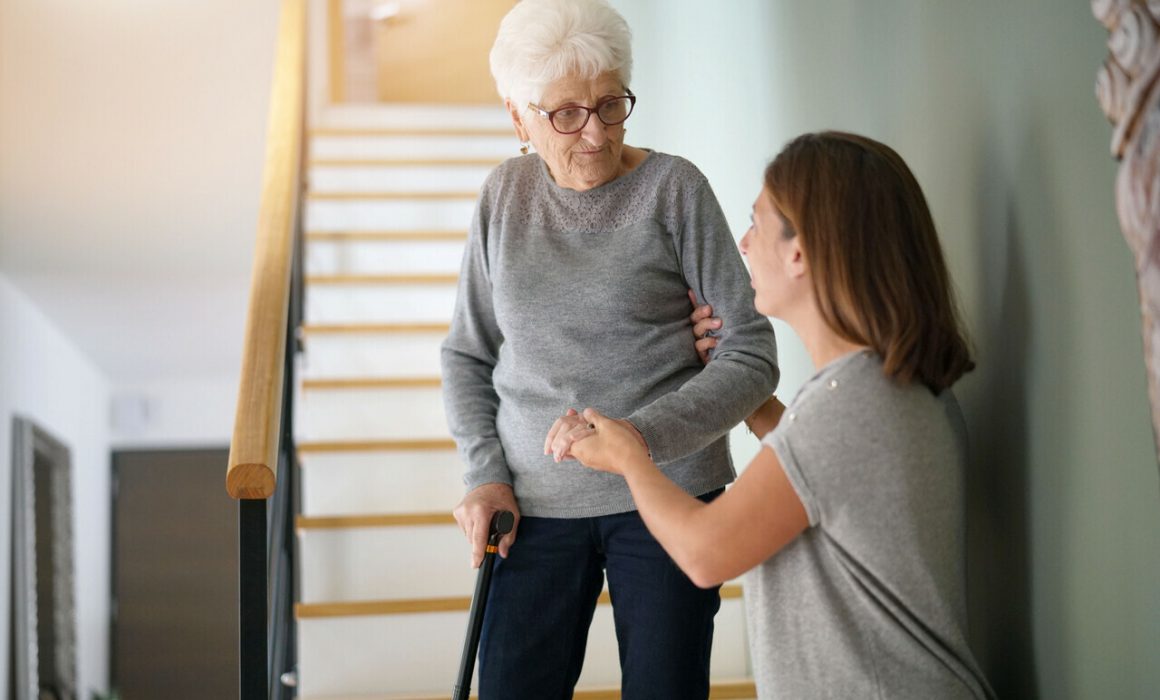Preventing Falls: Tips for Seniors at Home and in Care
Falls are one of the most common health risks older adults face, but they’re also one of the most preventable. A single fall can have serious consequences, from broken bones and hospital stays to a loss of confidence that can make everyday activities feel overwhelming. However, with the proper knowledge and support, older adults can reduce their risk of falling at home and in care and maintain the independence and quality of life they deserve.
At The New Jewish Home, we believe aging should be empowering, not limiting. That’s why we incorporate fall prevention into every aspect of our care, helping the older adults we serve move forward safely and confidently.
Why Fall Prevention Is Important for Seniors
As we age, it’s natural for our bodies to change. Muscles may weaken, balance may decline, and reflexes may slow down. When you add in health issues like arthritis or vision impairment, or the side effects of certain medications, the risk of falling increases.
Fall prevention is about more than safety, it’s about preserving dignity, mobility, and the freedom to live life fully. A serious fall can lead to long-term disability or make someone fearful of walking, moving, or even leaving the house. That fear can lead to isolation, depression, and even further physical decline.
How to Prevent Falls at Home
The home should be a place of security and comfort, not a place filled with hidden hazards. One of the most effective ways to prevent falls is by making simple changes around the house:
- Remove clutter from hallways and entryways.
- Keep everyday items within easy reach so there’s no need to stretch or climb.
- Replace dim bulbs and use nightlights to enhance visibility, especially in stairways, bathrooms, and bedrooms.
- Installing grab bars in the shower and next to the toilet can provide steady support.
- Secure rugs with nonslip backings to keep them from bunching and sliding to prevent accidents.
Creating a safer home environment doesn’t require a complete renovation; it just requires thoughtful adjustments that support mobility and confidence.
Simple Fall Prevention Checklist
Want to know if you or a loved one might be at risk for falls? Start by answering the questions on this checklist:
- Is the home free of tripping hazards?
- Are light switches easily accessible in every room?
- Are grab bars installed in the bathroom?
- Does the person have regular vision and hearing screenings?
- Has a recent medication review been conducted?
- Is the person using a cane or walker correctly?
- Are exercise and balance activities part of their routine?
Even if you answer “no” to just one or two questions, taking action can help reduce the risk of falls.
Fall Prevention in Skilled Nursing Facilities
Older adults living in care settings need just as much, if not more, attention to fall prevention.
At The New Jewish Home, our team regularly evaluates each resident’s mobility, strength, and fall risk. We tailor individual care plans to address each person’s specific needs, whether through physical therapy, adaptive equipment, or simple adjustments to daily routines. Staff are trained to respond quickly and sensitively to concerns about falls, and we always involve families in the process, keeping everyone informed and reassured.
At our Upper West Side rehabilitation program, fall prevention starts from day one. We don’t just focus on recovery; we focus on helping older adults regain the strength and confidence they need to return home safely and independently.
Exercises That May Help Prevent Falls
Movement is one of the most powerful tools for preventing falls. Gentle, consistent exercise can help improve balance, increase flexibility, and strengthen muscles that support stability.
Stretching routines, such as chair yoga and tai chi, are excellent options for older adults. They offer low-impact movements that promote body awareness and control. Even daily walks, either around the block or down a hallway, can keep the body active and engaged. In our communities, physical therapy and fitness programming are often built into the weekly schedule, making it easy and enjoyable to stay active.
These exercises can improve physical health while restoring confidence, reducing fear, and making day-to-day movement less daunting.
Assistive Devices That Can Help
Sometimes a little extra support is all it takes to stay steady. Assistive devices, when used correctly, can significantly reduce the risk of falls and help maintain independence. Common devices include:
- Canes and walkers for added stability
- Shower chairs and raised toilet seats for safer bathroom use
- Reacher tools to avoid overextending
- Nonslip shoes or socks for better traction indoors
If you’re unsure which devices are best, a physical or occupational therapist can provide guidance and training. At The New Jewish Home, our mission is to help older adults live their best lives safely, confidently, and independently. Whether you’re recovering with our Upper West Side rehabilitation program, working with our Solutions at Home® team, or making a home in one of our care communities, we’re here to support every step forward.
Falls may be common, but they’re not inevitable. With the proper support and awareness, every older adult can feel more secure and more in control of their daily life. Contact us today to discover how we support safety at every stage of care.

